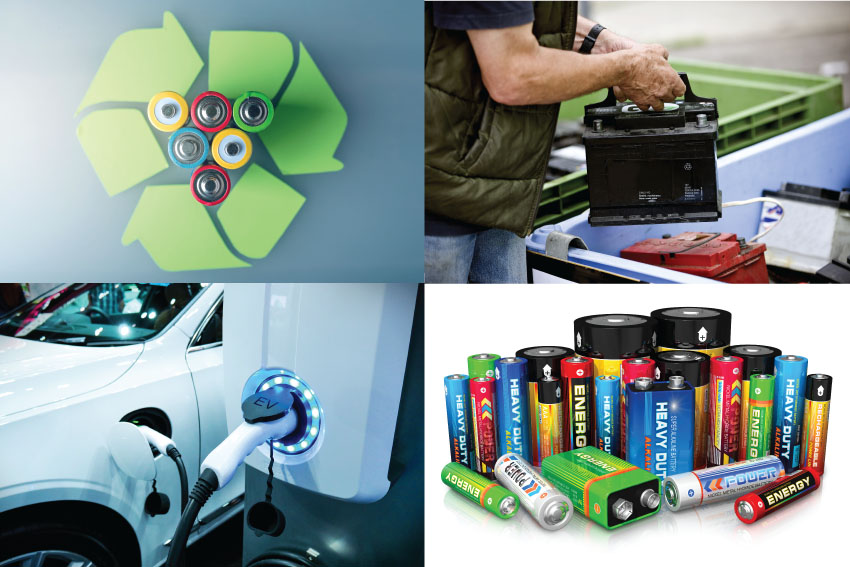
The importance of recycling is something we’re all aware of for the sake of our planet, but do you know why batteries should be recycled separately? How about what happens to batteries when recycled? Here, we’ll explore all that and more.
Where to Recycle Batteries
We’re often told that batteries need to be recycled separately from the rest of your waste. Perhaps you collect yours and take them to a supermarket; most now have battery bins, which is probably the easiest way to dispose of your batteries in the UK.
You can also take your dead batteries to a waste recycling centre (the tip), or some councils will collect your batteries as part of normal waste collection. However, it’s important to note that if this is possible in your area, you should still keep your bag of dead batteries separate from your main waste bags.
Why Should I Recycle Batteries?
Batteries contain materials, like lithium, that can be dangerous when exposed to the elements. So, they should always be recycled properly. When they end up in a landfill, batteries can easily become punctured by the weight of other waste, as well as any sharp objects surrounding them. The chemicals inside batteries can then contaminate the landfill site and contribute to various types of pollution. Equally, if they end up in normal recycling, they can be a risk to recycling workers.
The only truly safe way to dispose of batteries is by taking them to allocated battery recycling locations where the recipients can safely and appropriately recycle them.
What Happens to Recycled Batteries?
The Battery Recycling Process
The main type of battery used in the UK is lithium-ion batteries. These cover AA batteries, as well as AAA, car batteries, and consumer-based batteries like those used in laptops and phones.
When these are taken away for recycling, the first thing that happens is that they get broken apart in a hammer mill. Once broken up, they’re rinsed of their sulphuric acid, and separated again into lead and plastic in a water bath.
The lead and plastic then get melted and are reused in new batteries. The acid is typically converted into, and reused as, industrial chemicals.
How are Car Batteries Recycled?
Car batteries are also lithium-ion based, and are one of the most commonly recycled battery types in the UK.
Unfortunately, it’s currently cheaper to create new batteries than it is to complete the process of recycling used ones. Hopefully, the increase in electric vehicles will reduce the need for current heavy-duty car batteries.
What is the Value of Battery Recycling?
Currently, automotive OEMs pay for dead batteries to be taken away, at which point the ownership of the battery changes over to the disposal company.
The value of battery recycling is expected to grow to around £19.5 billion, a similar figure to the primary metals industry by as soon as 2025 with the rate at which technology continues to become pivotal to society.
Recycle Safely with Label Source
At Label Source, we provide the signage you need to ensure your in-house recycling is being done properly. Our environmental signs and tapes can help you and your employees streamline your recycling and make sure that everything gets sent to the right, and safe, location for recycling.
Get in touch or check out our blog to find out more about how we can help optimise your workplace safety.